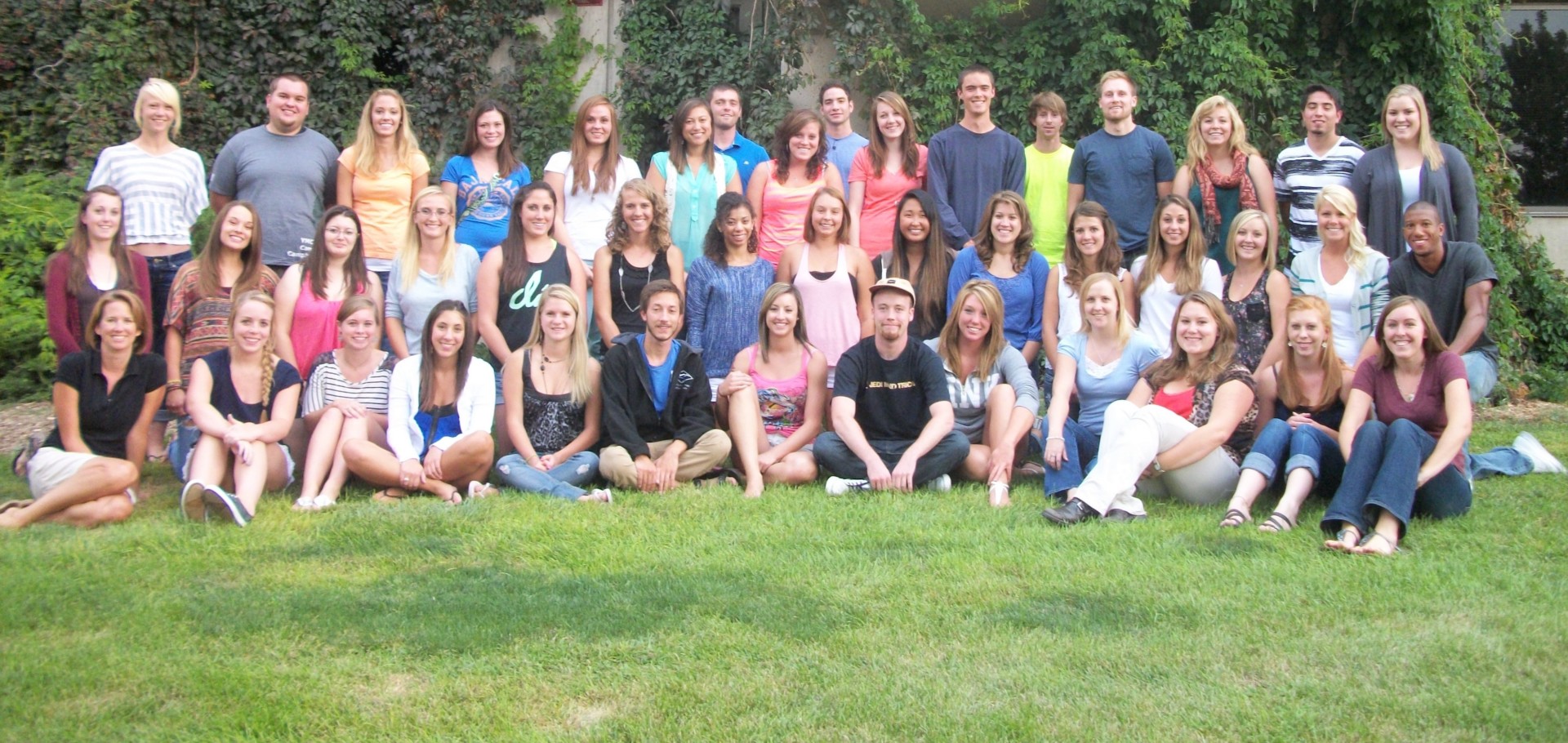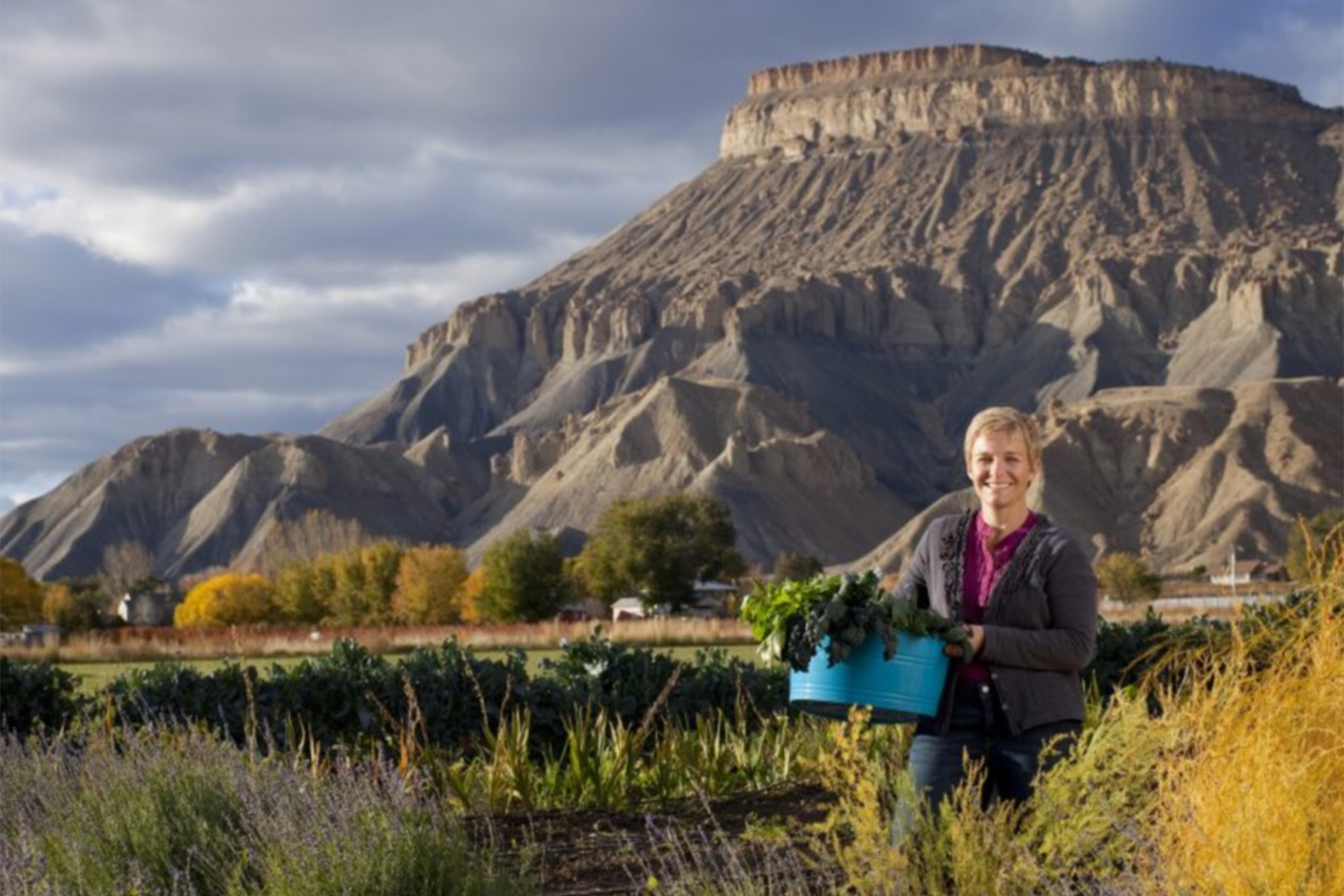Two programs with profound community impact – one that improves the lives of youth in the Larimer County and one that provides hunger relief in Mesa County – are this year’s recipients of the CSU Community Engagement Scholarship Awards. The awards are conferred annually in recognition of exemplary engaged scholarship by CSU faculty or academic staff members and their community partners.
The Carnegie Foundation describes community engagement as “the collaboration between institutions of higher education and their larger communities for the mutually beneficial exchange of knowledge and resources in a context of partnership and reciprocity.”
CSU Campus Connections

CSU’s Campus Connections youth mentoring program was recognized with the CSU Distinguished Community Engagement Scholarship Award, which celebrates a collaboration, project or program with a long-term record of sustained impact, achievement and scholarship.
As a land-grant institution and Carnegie Community Engaged University, engagement is one of the university’s most important core values. The Campus Connections youth mentoring program in the Department of Human Development and Family Studies of the College of Health and Human Sciences embodies this value with their commitment to improving the lives of youth in the community.
Campus Connections launched ten years ago in response to a community need to aid vulnerable, local youth who were struggling in school or already in the juvenile justice system. This population of vulnerable youth in Larimer County struggled with truancy, substance use, delinquency, and mental health issues and was growing rapidly.
Due to the 2008 economic recession, intervention services for these young people hadn’t been prioritized, and there was a distinct lack of services available for this critical population.
In 2009, during the search for creative solutions to this growing problem, Shelley Haddock, an associate professor in CSU’s Department of Human Development and Family Studies; Jen Krafchick, associate professor in HDFS; and Toni Zimmerman, professor and program director of the Marriage and Family Therapy Graduate Program, collaboratively came up with the idea for Campus Connections.
“We used our expertise in family therapy, trauma-informed care, mentoring and prevention to design a program based on the best practices from the research,” said Krafchick. “It was very important to us that the program was evidence-based.”
The program pairs CSU undergraduate students with 10-18 year-olds who are referred from the local juvenile justice system, schools, human services and other providers.
Involving community partners
“CC supports a community need, engages various agencies in partnership with assets at the University, and provides a program that both serves youth in need, and also provides a high-impact learning experience for CSU students,” wrote the nominators, a group made up of community members who have been involved in the program in various ways.
The Campus Connections program is unique because it provides participants with on-campus, after-school programming that includes mentoring, mental health therapy services, trauma-informed care, family support, assistance with homework or GED preparation, access to prosocial activities and dinner and social justice awareness activities. The goal is to influence youth behavior and choices in a positive way through mentoring and support.
An important aspect of the program’s success is its community partners.
“We worked closely with our community partners to ensure that the program had the components that would best address the needs of the youth while also providing an impactful learning experience for our students,” said Krafchick.
Seeing results
In the past seven years, Campus Connections has won seven awards, the most recent being the Innovation and Economic Prosperity Universities Award in the “Talent” category from the Associations of Public Land-Grant Universities, and the Excellence in Community Partner Engagement Award from the Engagement Scholarship Consortium, both in 2018.
Campus Connections epitomizes the mutual benefits that can be achieved through truly collaborative, reciprocal and effective university-community partnerships. Both community partners and program faculty are thankful to have received the CSU Distinguished Community Engagement Scholarship Award and are looking to increase the program’s reach and recognition in the future.
Read the full story about Campus Connections here.
CSU’s Community Alliance for Education and Hunger Relief

CSU’s Community Alliance for Education and Hunger Relief was awarded the Emerging CSU Community Engagement Award for its work with local food banks and underserved neighborhoods in Mesa County. The Emerging award celebrates a new initiative that has shown potential for long-term impact, achievement and scholarship.
According to nonprofit Hunger Free Colorado, roughly one in seven Colorado children may not always know when or where they’ll get their next meal. That’s a problem Amanda McQuade of Colorado State University’s College of Agricultural Sciences is trying to eliminate. Through her Community Alliance for Education and Hunger Relief, McQuade wants to cut down on food insecurity while providing a series of educational programs to better connect people to the food they eat.
Leveraging CSU and partners to fill food banks
Launched in 2017, the Alliance aims to increase the number of high-quality fruits and vegetables available to those facing food insecurity in Mesa County and throughout Colorado. As part of CSU’s Agricultural Experimental Stations and University Extension, the Alliance is uniquely positioned to help put produce in the hands of those in need, while leveraging the university’s extension arm to enrich the community educationally.
“I think the number one misconception people have about food banks is that they don’t want fresh produce,” says McQuade. “We’re all so programmed to think of canned food because of those food drives.”
The Alliance was born from a years-long volunteer effort by McQuade, who would often glean backyard produce to donate to local food banks. This caught the attention of staff at the Orchard Mesa Research Station, which began donating produce such as peaches to McQuade’s efforts. That relationship grew, with the station eventually donating all of their produce each harvest.
In 2016, McQuade accepted a position at the station and the Alliance was formed. The Alliance now partners with organizations such as Food Bank of the Rockies, Mesa Valley County School District 51 and Western Colorado Community College to increase its impact. Additionally, the Alliance brings in fundraising partners to help finance the production of produce and recently surpassed $100,000 in total donations.
“Dr. McQuade and her colleagues have developed an innovative new food resource that significantly increases the amount of fresh produce made available to meet the needs of low-income communities,” said Eugene Kelly, deputy director of the Colorado Agricultural Experimental Stations. “The project has accomplished this through an innovative partnership between educational institutions that will grow the food, the community that harvests the food, private sector buyers that will help support food production through purchases, and hunger relief agencies that distribute the food and guide the type of food to be grown.”
Read the full story about CSU’s Community Alliance for Education and Hunger Relief here.
Honorable mentions
The awards selection committee also bestowed two honorable mentions this year. The Dearfield Dream Project was recognized in the Distinguished category for its leadership in engaging a broad interdisciplinary network of community partners in researching, preserving, and raising awareness of the culturally significant Colorado historic site of Dearfield, an early 20th Century African American colony. To date, seven CSU faculty and staff and over 400 students have contributed to the project over its nine-year history. The College of Liberal Arts was also honored for its significant and diverse achievements in engaged scholarship, demonstrated in the college’s 12 nominations over the first two years of the awards program.
CSU Community Engagement Scholarship Awards
The CSU Community Engagement Scholarship Awards are an initiative of the Provost’s Council for Engagement, jointly established by the Office of the Provost & Executive Vice President and the Office of Engagement. The Council was formed to advance the practice and recognition of engaged scholarship at CSU. A full list of this year’s nominations can be found at the Office of Engagement website.